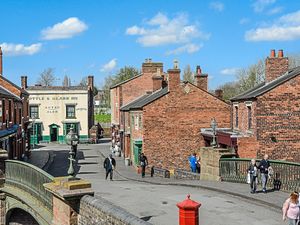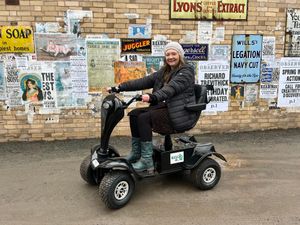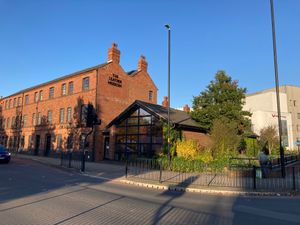Keith telling stories of the poor to make sure their voices are heard
Living in a workhouse was a grim reality for society’s most vulnerable people during the late 18th century and 19th century.
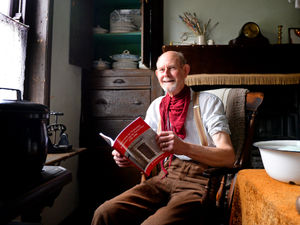
They offered basic food and shelter in exchange for labour but were feared by the poor and old alike due to their notoriously harsh conditions. Many were left with no choice as it was their only way to survive after becoming destitute.
Historian Keith Robinson wanted to tell the stories of poor people because their voices are often unheard. In his new book, he reveals the lives of those who were in Wednesbury Workhouse and in that of neighbouring West Bromwich, looking at why they had fallen on such hard times and what became of them.
Voices from the Wednesbury Workhouse and the Parish Poor 1750–1900 also examines the impact of the The Poor Law Amendment Act of 1834, passed amid a rising number of paupers, which declared that poor relief should only be offered in the workhouse.
But due to the huge costs involved many parishes continued to provide outdoor relief in the form of money and items such as bread, which prevented more people from ending up an institution.
“There are many parallels with our modern society,” he says. “Today, many people live to a grand old age. Some retain their independence at home supported by state or private pensions.
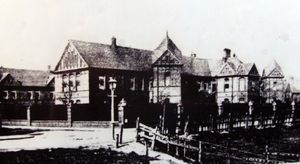
“But governments are struggling to foot the bill for the elderly and the age at which we receive state pensions is rising.
“In the late 18th century and in the 19th century, many of the Wednesbury Workhouse inmates were elderly. There were no pension schemes that we would recognise today. Often these men and women had worked for 50 years, could no longer work and had no means of support. The lucky ones were taken in by their relatives, if they themselves could support them. Others had no relatives and fell on the parish.
“Food banks are nothing new and while the need for them in today’s society is deplorable, they were common in the 19th century. Wednesbury had several charities which gave out food and clothing and a percentage of the relief given by parish authorities was, by law, to be in kind,” adds Mr Robinson, as an introduction to his book. He was inspired to start his research into the lives of Wednesbury’s poorest residents after the chance purchase of a document from eBay.
“It was the Removal Order of one William Onions, carried out in 1801, by the Wednesbury Overseers. William Onions and his family had come from Shropshire and settled in Wednesbury.
“He found work and he and his wife had two kids there. But then he fell out of work and was removed from his parish and sent back to the county where he had come from,” explained Mr Robinson.
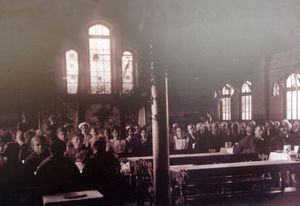
Wednesbury Workhouse lay on Meeting Street, formerly known as Workhouse Lane, and had opened in the early 18th century. Labour carried out by residents included stone breaking and rope unpicking. It closed in 1857 when all of the inmates were transferred to the Union Workhouse in West Bromwich. “We don’t know much about the conditions inside Wednesbury Workhouse but there were reports of awful overcrowding.
“We know a lot more about West Bromwich Workhouse which would have had better facilities. It’s probably the attitude of the staff that stands out more because they got through so many governors in the first 10 to 15 years.
“For most it was just a job and they pretty much viewed the inmates as a nuisance. There was that attitude that people were undeserving of care.
“A lot of the inmates were widows, there were children whose parents had died and people who were very old and couldn’t work anymore. There were also people who were suffering from dementia.
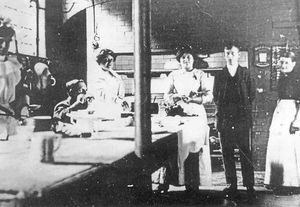
“When families arrived at the workhouse they would be separated, women would go to one ward, men to another and children to another. A married couple may never see each other again. It wasn’t until the late 19th century that elderly couples were allowed to live together in the workhouse,” said Mr Robinson.
The formation of Wigmore Industrial Schools helped to take some children away from the workhouse.
The schools contained an engineering workshop and the boys were also instructed in tailoring, shoe-making, carpentry and bakery. The girls were taught sewing and all their clothes were made in-house. They were also instructed in cleaning and there was a laundry and kitchens where they could ‘learn’ other domestic duties.
“People were trying to give direction and hope to these children. There is a heart-warming story of a child from Wednesbury named Dagmar Wilkes who was at Wigmore.
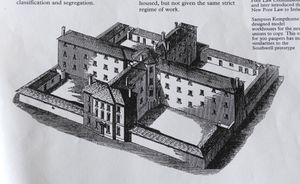
“She became a nurse and later a matron and held positions of responsibility at hospitals around the country. I wonder how she got inspired to become a nurse and how she was able to start her career?,” said Mr Robinson.
Mr Robinson, who grew up in Wednesbury and now lives in Bayston Hill, on the edge of Shrewsbury, has also researched the children who were indentured as parish apprentices, the people who claimed outdoor relief, and the men and women who tried to settle in Wednesbury.
As part of his research into poor relief he examined two bread dole books covering the second half of the 19th century.
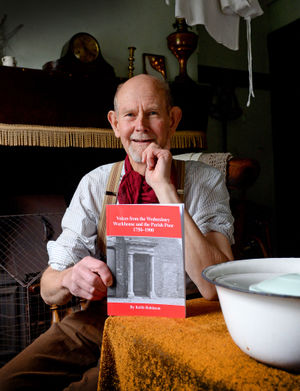
The majority of the bread recipients in the books were widows, including many whose husbands had been miners and had died an early death. The number of men claiming bread dole increased as unemployment took its toll.
“One thing that shocked me that some of the bread was given out by the church and there are a couple of incidents where people’s bread was stopped because they didn’t attend church - they were strings attached, that really stopped me in my tracks,” said Mr Robinson.
*The book costs £9.99 and is available from Keith Robinson on netcord9@hotmail.com, 01743 873348 or 07932 694279. It is also being stocked at Black Country T Shirts in Dudley, Ashwood Nurseries, near Kingswinford, Darlaston Post Office, Mindful Gifts and Party masterz.

